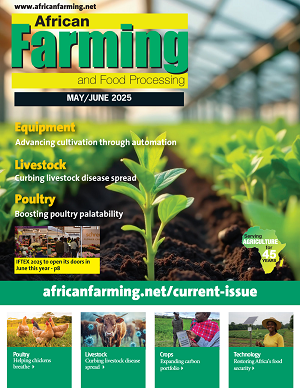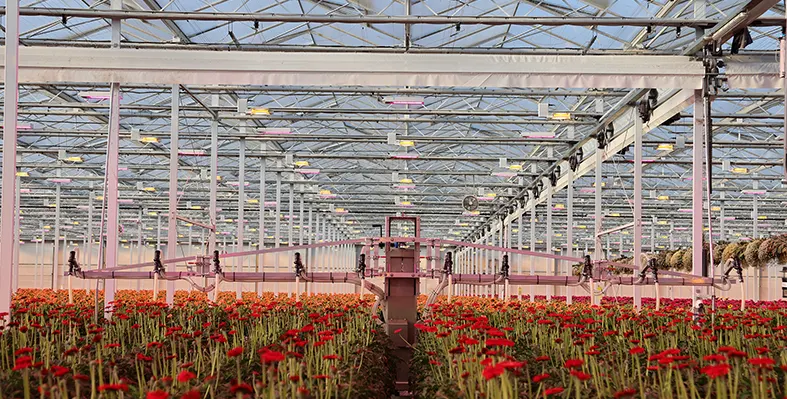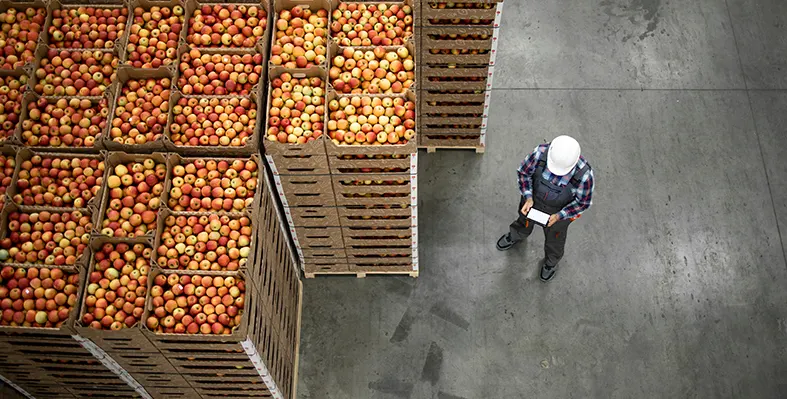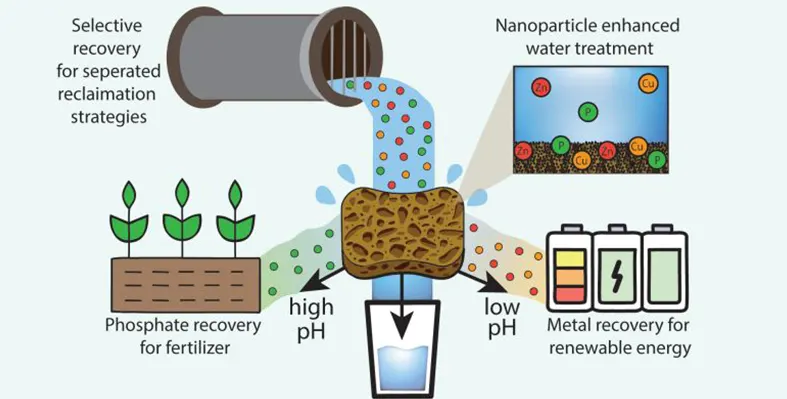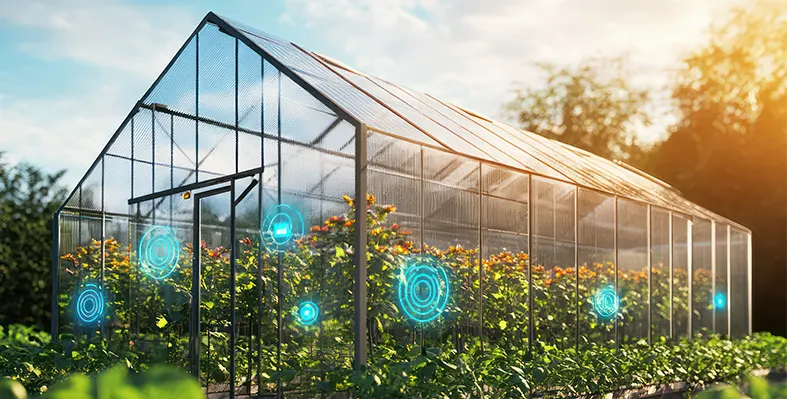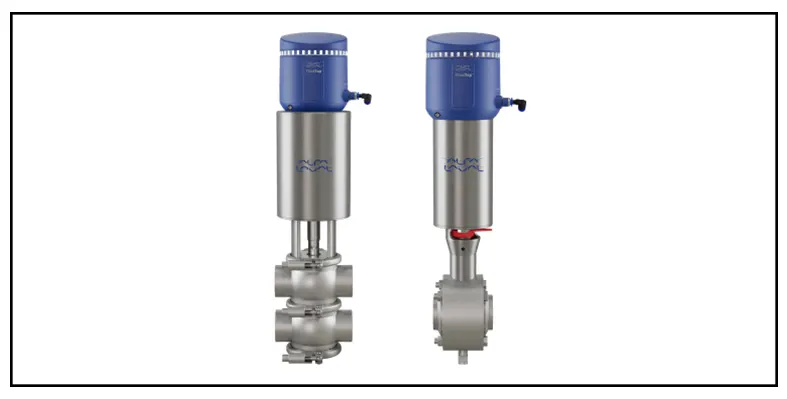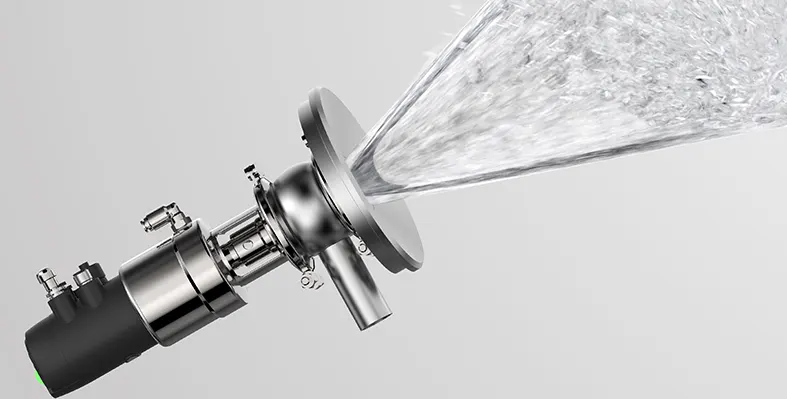In The Spotlight
ZIVO Bioscience, Inc., a biotech and agtech research company developing immune-boosting compounds from proprietary algal cultures, has announced a new partnership with one of the world’s leading animal health companies
The collaboration focuses on advancing ZIVO’s novel biologics for use in the poultry industry and may expand to other livestock and companion animals in the future.
The companies have signed two agreements to conduct independent studies that will explore the potential of ZIVO’s compounds to support poultry health. The goal is to enhance existing vaccination strategies and help address diseases that continue to affect poultry production.
Expanding poultry protection
The first agreement involves a 42-day challenge study focused on coccidiosis, a common and damaging parasitic disease in poultry. This study aims to confirm earlier positive results from ZIVO’s compound, now used alongside the partner’s vaccine. It will also collect samples to evaluate new performance measures. Findings will support ZIVO’s regulatory process with the USDA’s Center for Veterinary Biologics and help establish a strong business case for commercial use.
The second agreement outlines a study of ZIVO’s compounds using a model for a viral poultry disease that causes high mortality and has no available cure. The virus was chosen for its well-known in vivo model, clear clinical results and short testing timeline. The goal is to confirm the antiviral effects ZIVO has already observed in earlier trials, including reduced severity and spread of low-pathogenic avian influenza. Positive outcomes could lead to broader studies covering more viral diseases.
The collaborating animal health company will fully fund both studies. Researchers will assess how ZIVO’s compounds can shorten the time between vaccination and immunity, protect birds in vulnerable periods, enhance immune response and reduce the impact of diseases that suppress the immune system.
“This collaboration supports our strategy to partner with a major animal health company that brings scientific expertise and R&D infrastructure to advance our innovations to global markets efficiently and at scale,” said John Payne, chairman and CEO of ZIVO Bioscience. “We are aligned with this company on the broad applicability of our immune-modulating technology and its potential to create a disruptive, non-antibiotic therapeutic platform.”
Crop farmers in South Africa are improving equipment maintenance and reducing risks with the help of Atlas Copco’s U190 PACE portable air compressors
These compact and rugged units are supporting smart farming by cutting input costs and extending the life of agricultural machinery through effective and regular cleaning.
Used on farms in the Bethlehem district of the Free State province, the U190 PACE has been praised for its manoeuvrability and ease of use. Its lightweight design allows it to be easily transported across rough terrain using a trailer, light delivery vehicle or forklift, making it ideal for field use.
Farmlands often present challenging environments, with dust, mud, plant debris and stones threatening the functionality of machinery. Equipment like diesel engines and coolers can become clogged, increasing the risk of overheating and fire. Daily cleaning using compressed air significantly reduces this risk and helps ensure equipment remains in peak condition. It also protects farmers from potential insurance claim rejections due to poor maintenance.
For crops like maize and sunflower, where dust is highly flammable, cleaning sometimes takes place twice a day. With farms often covering over 5,000 hectares, bringing machinery back to workshops for cleaning is inefficient. Instead, taking the U190 PACE compressor to the field is both practical and cost-effective.
The compressor is used with a 30-meter hose and blower pipe to remove built-up dust and debris from machines such as harvesters, balers, and tractors. This not only extends machinery life but also improves safety and reduces total operational costs.
Equipped with PACE (Pressure Adjusted through Cognitive Electronics) technology, the U190 PACE allows farmers to adjust pressure settings based on the task at hand. Beyond cleaning, the compressor can be used for inflating tires, sandblasting and operating pneumatic tools.
Chantal Jonker, operational manager at JR Compressors & Industrial Supplies (Pty) Ltd, noted that the compressor’s portability and performance have added immense value for South African farmers.
“It’s not just about cleaning, it’s about protecting investments, improving safety, and keeping operations running efficiently no matter how remote the location,” said Jonker.
The U190 PACE is proving to be a vital tool, supporting more efficient and safer farming practices across the country.
The Turkish Cooperation and Coordination Agency (TİKA) has launched the ‘365 Days of Fresh Feed’ project in the Tajoura district of Tripoli, Libya, to support the development of the livestock sector and contribute to sustainable feed production
The ‘Hasılmatik: 365 Days of Fresh Feed’ project was implemented by TİKA in cooperation with the Municipality of Tajoura.
The project, introduced for the first time in Libya, is expected to significantly improve feed production efficiency, according to TİKA’s Tripoli coordinator, Ali Suha Bacanakgil and would have a transformative impact on the livestock sector.
“In this project, wheat and barley seeds turn into fresh fodder within 7 to 10 days. The feed produced by Hasılmatik is much more efficient than dry feed. Animals can consume it entirely, including its sprouts and roots, with 100% digestibility,” he said.
Bacanakgil outlined the intention to increase the number of local stakeholders and expand cooperation across municipalities and agricultural cooperatives.
Tajoura Deputy Mayor Ayman Al-Salim highlighted the issue of groundwater scarcity in the region, stating that the project offered a significant solution to this problem in terms of livestock production.
“A simple system, low water usage, and high productivity — this project will revitalise animal husbandry,” he said.
Mahmoud Marwan, one of the local farmers benefiting from the project, emphasised that the ‘365 Days of Fresh Feed’ system saves both land and time and noted that the resulting product is suitable for cattle, sheep, goats, and poultry.
Read more:
TIKA launches vegetable and moringa production garden in Niger village
Turkey provides agricultural equipment to help support South Sudan farmers overcome food security
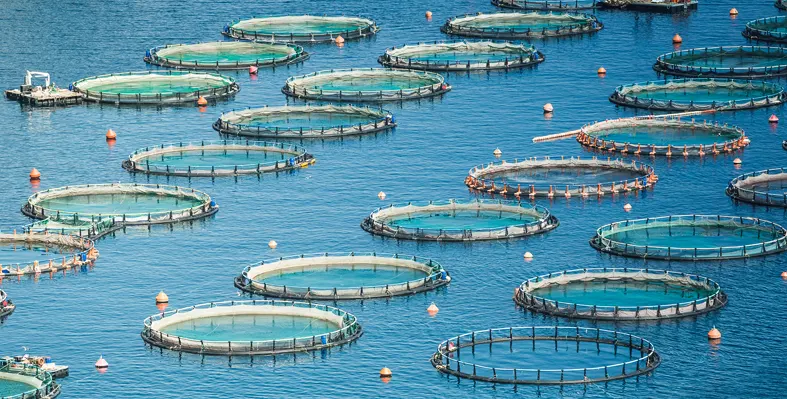
A workshop was organised to align national fisheries and aquaculture strategies and agricultural investment plans with the PFRS. (Image source: Adobe Stock)
The African Union's Policy Framework and Reform Strategy (PFRS) for Fisheries and Aquaculture in Africa aims to advance the continent’s blue economy
The initiative is a coherent continental roadmap for policy reform and investment in the fisheries and aquaculture sector. It has been instrumental in guiding AU Member States, Regional Economic Communities, and Fisheries Bodies to strengthen governance, institutional frameworks, and climate resilience in aquatic food systems.
A Stakeholder Consultation and Validation Workshop was hosted recently in Lusaka, Zambia, by AU-IBAR in collaboration with the Ministry of Fisheries and Livestock of the Republic of Zambia. The workshop seeks to align national fisheries and aquaculture strategies and agricultural investment plans with the PFRS, while integrating relevant global and regional instruments and addressing climate change adaptation.
"We aim to grow our annual fish output to 225,000 metric tonnes by 2026 by scaling up fingerling production and enhancing monitoring and surveillance systems," said Fred Mwila, acting permanent secretary in the Ministry of Fisheries and Livestock.
Representing the AU-IBAR Director, Patricia Lumba, said, “The PFRS and the Africa Blue Economy Strategy are not just policy tools—they are instruments of transformation for communities, economies, and ecosystems across Africa.”
Over the four-day workshop, stakeholders—including government officials, regional bodies, researchers, and consultants—are reviewing findings from national consultations on policy coherence with the PFRS. They are also making specific recommendations for the domestication of global instruments, such as those related to biodiversity, food safety, and small-scale fisheries. Discussions are being held in breakout sessions and plenary formats, focusing on improving national agricultural investment plans (NAIPs), ensuring climate-smart approaches, and identifying legal and institutional reforms needed to implement the PFRS effectively.
ZIVO Bioscience, Inc., a biotech and agtech research company developing immune-boosting compounds from proprietary algal cultures, has announced a new partnership with one of the world’s leading animal health companies
The collaboration focuses on advancing ZIVO’s novel biologics for use in the poultry industry and may expand to other livestock and companion animals in the future.
The companies have signed two agreements to conduct independent studies that will explore the potential of ZIVO’s compounds to support poultry health. The goal is to enhance existing vaccination strategies and help address diseases that continue to affect poultry production.
Expanding poultry protection
The first agreement involves a 42-day challenge study focused on coccidiosis, a common and damaging parasitic disease in poultry. This study aims to confirm earlier positive results from ZIVO’s compound, now used alongside the partner’s vaccine. It will also collect samples to evaluate new performance measures. Findings will support ZIVO’s regulatory process with the USDA’s Center for Veterinary Biologics and help establish a strong business case for commercial use.
The second agreement outlines a study of ZIVO’s compounds using a model for a viral poultry disease that causes high mortality and has no available cure. The virus was chosen for its well-known in vivo model, clear clinical results and short testing timeline. The goal is to confirm the antiviral effects ZIVO has already observed in earlier trials, including reduced severity and spread of low-pathogenic avian influenza. Positive outcomes could lead to broader studies covering more viral diseases.
The collaborating animal health company will fully fund both studies. Researchers will assess how ZIVO’s compounds can shorten the time between vaccination and immunity, protect birds in vulnerable periods, enhance immune response and reduce the impact of diseases that suppress the immune system.
“This collaboration supports our strategy to partner with a major animal health company that brings scientific expertise and R&D infrastructure to advance our innovations to global markets efficiently and at scale,” said John Payne, chairman and CEO of ZIVO Bioscience. “We are aligned with this company on the broad applicability of our immune-modulating technology and its potential to create a disruptive, non-antibiotic therapeutic platform.”

This initiative targets vulnerable communities affected by climate change. (Image credit: Adobe Stock)
BRAC has received a US$300,000 grant from The Rockefeller Foundation to create a programme aimed at helping three million women smallholder farmers in Bangladesh, Liberia, Tanzania, and Uganda by 2030
This initiative targets vulnerable communities affected by climate change. It will first launch in Bangladesh's coastal and drought-prone areas, providing farmers with services like agricultural technology, weather forecasts, adaptive insurance, and better market connections.
Deepali Khanna, head of Asia, The Rockefeller Foundation, stated,“Smallholder farmers are on the frontline of so many challenges, including the impact of climate change. Through our support of BRAC, we are empowering smallholder farmers not only to withstand disruptions, but also to advance solutions that can help build the foundation for lasting economic opportunity.”
The programme emphasises a community-led approach, ensuring it is culturally relevant and sustainable. The aim is to equip communities with skills to build resilience against challenges like rising salinity and erratic rainfall. BRAC plans to raise an additional US$300mn for this programme, intending to impact around 14 million people positively.
“At BRAC, we believe in equipping people and communities with the skills they need to build their own resilience,” said Asif Saleh, executive director of BRAC. The Rockefeller Foundation’s support takes an important step in showing that locally driven innovation, when scaled up, can unlock pathways for millions of people to do that.”

Zoomlion showcases tailored solutions for Africa’s growth at China-Africa Economic and Trade Expo. (Image source: Zoomlion)
Zoomlion Heavy Industry Science & Technology Co., Ltd. took centre stage at the 4th China-Africa Economic and Trade Expo in Changsha, China, from 12 to 15 June, showcasing its latest agricultural and engineering machinery solutions tailored specifically for the African market
Since making its entry into Africa in 2007, Zoomlion has played an integral role in infrastructure development and agricultural modernisation across the continent. The company has also been committed to nurturing local talent, evident in its ongoing technical training programs, such as those provided to Ugandan farmers to enhance agricultural skill sets.
At the trade expo, Zoomlion displayed a comprehensive line-up of machinery, ranging from construction cranes and earthmoving equipment to aerial work platforms and advanced agricultural machinery. These products are engineered to withstand and perform efficiently in Africa’s diverse and often demanding working conditions.
Zoomlion’s footprint in Africa has expanded significantly over the past 18 years. The company has delivered more than 10,000 units of equipment to markets across the continent, establishing itself as one of Africa’s leading machinery suppliers. In addition to setting up subsidiaries in key markets like South Africa, Nigeria, Kenya, and Tanzania, Zoomlion has developed a robust after-sales infrastructure. This includes spare parts centres in Algeria and South Africa, a joint-venture manufacturing plant in Algeria, and an expanding network of dealers and service providers across the region.
The company has also been instrumental in supporting critical infrastructure projects throughout Africa. These include Egypt’s New Administrative Capital—home to Africa’s tallest skyscraper at 385.8 metres—the Julius Nyerere Hydropower Project in Tanzania, which boosts the country’s energy capacity nearly fourfold, and the N'Djamena Stadium in Chad, designed to host international sports and cultural events. Another notable contribution is the Rosso Bridge, linking Senegal and Mauritania, which will enhance regional trade and connectivity.
Zoomlion’s growth trajectory in Africa continues to accelerate. Sales in the first quarter of 2025 alone accounted for 60% of the total recorded in 2024, underlining rising demand for its solutions. As of May 2025, the company’s Africa team comprised over 300 employees, with more than 90% of them being locally hired—demonstrating Zoomlion’s commitment to job creation and skills development in the region.











